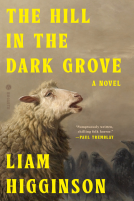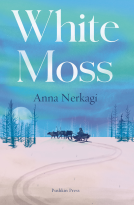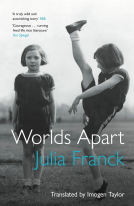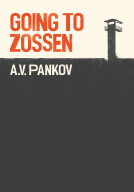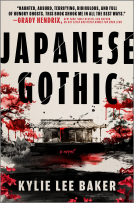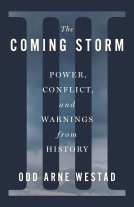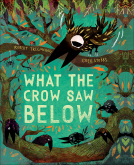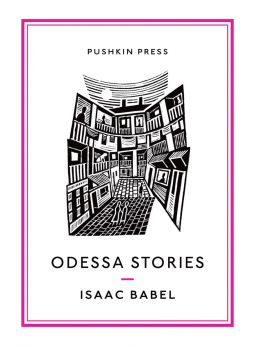
Odessa Stories
by Isaac Babel
This title was previously available on NetGalley and is now archived.
Send NetGalley books directly to your Kindle or Kindle app
1
To read on a Kindle or Kindle app, please add kindle@netgalley.com as an approved email address to receive files in your Amazon account. Click here for step-by-step instructions.
2
Also find your Kindle email address within your Amazon account, and enter it here.
Pub Date Nov 15 2016 | Archive Date Oct 10 2016
Pushkin Press | Pushkin Collection
Description
In the original Odessa Stories collection published in 1931, Babel describes the life of the fictional Jewish mob boss Benya Krik - one of the great anti-heroes of Russian literature - and his gang in the ghetto of Moldavanka, around the time of the October Revolution. Praised by Maxim Gorky and considered one of the great masterpieces of twentieth-century Russian literature, this is the first ever stand-alone collection of all Babel's narratives set in the city, and includes the original stories as well as later tales.
Advance Praise
'Aside from being a great writer, Babel stands as an emblem of the tragedy of 20th century totalitarianism... literary genius framed by 20th-century tragedy' New York Times
'It is impossible to look at the world the same way after reading Babel... one of the enduring jewels of 20th-century Russian literature' Financial Times
Available Editions
| EDITION | Other Format |
| ISBN | 9781782271666 |
| PRICE | $18.00 (USD) |
| PAGES | 224 |
Average rating from 13 members
Featured Reviews
This is a fantastic collection of short stories. I really love what they did here with this reprint.
 Educator 144982
Educator 144982
Isaac Babel is always worth reading and should always be recommended. Making him available in new translations just makes him that much more accessible to readers of English.
 Annie S, Librarian
Annie S, Librarian
Russian literature has (deservedly) a reputation for being utterly depressing and heavy—which is why it’s always a delight to find comic writers like Teffi and Isaac Babel. The humor in these authors’ stories and feuilletons is caustic and sharply observed, but still makes me smile and chuckle. This week I read Isaac Babel’s classic collection, Odessa Stories (translated by Boris Dralyuk), about Jewish life in Odessa in the early twentieth century. The collection is night-and-day from his collection Red Cavalry, as one might expect, but it shares similar themes of violence and chaos without being as gutting as Red Cavalry. Odessa Stories is packed with gangsters, tsarist and communist officials, pigeons, and a lot of slapstick.
Most of the stories in this collection center on Benya Krik—Benya the King—and his extended family. Benya is a gangster. He’s twenty pounds of chutzpah in a ten pound sack and gets away with things that should have gotten him shot on the spot. Over the course of the stories, we see Benya rise and the old order fall as the Bolsheviks take control of the country. We see him face off against police and set up protection rackets on intractable rich men. The stories are almost always told secondhand by someone who claims they were present or heard it from a reliable source. The narrators invariably end up telling the story in a loopy, unfocused manner that mirrors the chaos of Benya and his family members’ lives. So, while the stories are ostensibly about Benya, we end up learning a lot about their friends, enemies, and the Jewish community of Odessa and its suburbs.
Odessa Stories also contains a long pair of semi-autobiographical stories about an unnamed boy who is an awful lot like the young Babel. The stories relate how the boy got caught in a pogrom before finding shelter with a friendly family. This story is a stark reminder of how dangerous life could be for Jewish Russians: most of the time, families got along but things could turn deadly in an instant. The other semi-autobiographical story contains my favorite part of the whole collection. The young narrator has been ingratiating himself with the wealthy son of an important family. They’re good friend, but the boy tells all sorts of lies to disguise his origins. Unfortunately, he gets caught up in his lies when he reciprocates an invitation to tea. The boy sends away his embarrassing uncle and grandfather and is praying that they don’t come back before his guest leaves. So, of course they come back. Hilariously, the narrator recites Marc Antony’s eulogy from Julius Caesar to distract his guest (at increasing volumes) while his uncle crows about an amazing deal he got for a huge piece of furniture and his grandfather tortures a violin outside.
Unlike Teffi’s comic stories, the darkness of Russian life is closer to the surface in Babel’s. A person more cynical than I probably would have laughed more at the characters’ antics. I did laugh, but not too much because I could always see how a lucky escape could have easily turned into an ignoble death.
I received a free copy of this book from NetGalley for review consideration. It will be released 15 November 2016.
 Ilse A, Reviewer
Ilse A, Reviewer
'Thus, began my life, full of thought and merriment.'
Last week, Isaac Babel took me to the legendary city of Odessa, the mythical city of Rogues and Schnorrers on the coast of the Black Sea – Fascinated, I listened to the beguiling, mirthful and ironic voice of the narrator ‘with glasses on his nose and autumn in his heart’, depicting the feisty local life in the rambunctious Moldavanka, the tough and sinful district where Babel used to live, a Jewish gangsters’ paradise. As Comrade Babel had access to secret files of the police, he was well informed about Jewish banditism in Odessa.
The title of this collection, Odessa Stories, might be somewhat confusing, as it includes more stories than the ones originally known as the Tales of Odessa. The 17 stories included in Odessa Stories are arranged in three parts. 9 picaresque stories revolve around the adventures of mobster ‘King’ Benya Krik and other ‘Old Odessans’; 5 stories draw on Babel’s childhood and youth and are assumed semi-autobiographical; 3 are found under the title ‘Loose leaves and Apocrypha’.
As an Odessan Judeo-Russian author, Isaac Babel was acutely aware of his Jewishness and the preponderance of Jewish culture in his beloved hometown. Cosmopolitan Odessa was the most Jewish of Russian cities in the 1920 - in 1900, about 35 percent of the population was Jewish. Inspired by Odessa’s variegated population, Babel passes in review a rich mix of characters in his stories: thieves, swindlers, smugglers, draymen, shopkeepers, prostitutes, musicians, bourgeois, bankers, craftsmen, beggars, old pious Jews like the storyteller Aryeh Leib, luftmenschen – jacks-of-all-trades living on air, going from town to town buying and selling.
'In Odessa, luftmenschen skulk around coffee shops, looking to earn a rouble and feed their families, but there’s no work to be had – and what kind of work could there be for a useless luftmensch?' (From Odessa, 1916)
Pursuing ‘precision and brevity’ like Pushkin in his literary style, Babel’s utterly perceptive eye only needs a few pages and terse phrases to paint his flamboyant scenes: ’No iron spike can pierce a human heart as icily as a period in the right place’. According to another Soviet author associated with Odessa, his friend Konstantin Paustovsky, Babel once told him that he had to keep his phrases and stories that short because he suffered from asthma.
Babel needed to submerge in real life to inspire him. Infatuated with the prose of Gustave Flaubert and Guy de Maupassant, Babel’s living literary hero and mentor, Maxim Gorky – who protected him politically for 20 years - taught Babel ‘extremely important things and sent me into the world’, resulting in his most famous story cycle, Red Cavalry, on the 1919-21 Polish-Soviet war.
While reading Red Cavalry years ago, Babel’s unsettling juxtaposition of the most violent and blood-soaked savagery and splendid surreal imagery of nature revolted and delighted me so intensely I couldn’t stomach more than one story in one sitting. However stunning Red Cavalry, in some sense I felt relieved most tales in Odessa Stories are less disconcerting and shocking than the ones from Red Cavalry.
Besides the intriguing themes or engaging plots of the stories from the Odessa collection, it was mostly Babel’s unique expressionistic style and visual prose which overwhelmed and charmed me – again. Reading Babel is like stepping into a painting of Chagall, brushing his tableaus inspired by Jewish tradition and Russian folklore in a pictorial language brimming with vivid, brilliant colours. Searingly exuberant, at times affectionate, Babel wins the reader’s heart with his juicy metaphors and gaudy imagery. The sun is almost a character in itself: the sun rises over a head like a sentry with a rifle, sprinkles people with creeping freckles, freckles the colour of lizards, hangs from the sky like a thirsty dog’s rosy tongue or pours down into the clouds like the blood of a stuck hog, or soars up and spins like a red bowl on a spearhead. A sunset viscous as jam boils in the sky.
Babel seems on a personal cosmic mission to revitalize the sun in Russian literature, and in his eyes, it would take Odessa and an Odessite son to bring the sun to Russian literature and to free it from the clutches of cold and misty St Petersburg:
'Consider this: Could it be true that, in all Russian literature, there isn’t a single clear and joyous depiction of the sun? (…) And have you ever run across a bright and enlivening sun in Gogol – a man from Ukraine?(..) The first person to talk about the sun in a Russian book – to talk about it with enthusiasm and passion – was Gorky. but precisely because he talks of it with such enthusiasm and passion, we’re still not quite dealing with the real thing. Gorky is a forerunner – the most powerful in our time. But he is not a singer of the sun – he is the herald of truth. And know this: If there is anything worth singing about, it’s the sun (…). I believe the Russian people will soon be drawn to the south, the sea and the sun. Everyone feels the need for new blood. It’s getting hard to breathe. The literary messiah, for whom we’ve awaited so long and so fruitlessly, will come from there – from the sunny steppes washed by the sea.' (From Odessa, 1916)
There is the blowup and distorting of reality, and the schmaltzy Jewish pun. After having shot a man in How it Was Done in Odessa, mob leader Benya Krik tells the man’s mother: ‘Aunt Pesya, if you want my life, you can have it, but everyone makes mistakes, even God. That’s what it was, aunt Pesya – a huge mistake. But wasn’t it a mistake on God’s part to put the Jews in Russia, where they suffer as if they’re in hell? I ask you, why not have the Jews live in Switzerland, with nothing but top-quality lakes, mountain air and Frenchmen as far as the eye can see? Everyone makes mistakes, even God.’
Yet not all is laughing matter. The brutal realism of the times, of the Revolution and the new regime trickle down in stories describing how is done away with old Odessa figures who are useless in the bright Soviet future, like in The End of the Almshouse and Froim the Rook. There is the haunting anti-semitism and horrible pre-revolutionary violence on Jews. One of the most harrowing stories of this collection, The Story of My Dovecote parallels the outrageous brutality of the Red Calvary story cycle , recounting a pogrom from the perspective of a ten year old Jewish boy:
'My world was small and terrible. I shut my eyes, so that I wouldn’t have to see it, and pressed myself into the earth, which lay beneath me in soothing silence. This trodden earth had nothing in common with our lives – nothing in common with the anticipation of exams in our lives. Somewhere far away disaster galloped along this very earth on a big horse, but the sound of its hooves was growing weaker, vanishing, and calmness, that bitter calmness that sometimes comes over children during calamities, suddenly obliterated the boundary between my body and the unmoving earth. The earth smelt of damp inner depths, of the grave, of flowers.'
Isaac Babel was a great storyteller and a great stylist. In 1940, at the age of 45, he was shot by a firing squad for treason, for belonging to a Trotskyist group and spying. His body was thrown into a communal grave.
'I stood there all alone, clutching my watch, and suddenly, with a clarity I had never experienced until that point, I saw the towering columns of the City Council, the well-lit foliage along the boulevard, and Pushkin’s bronze head, faintly reflecting the glow of the moon. For the first time I saw my surroundings as they actually were – hushed and unspeakably beautiful.' (from Di Grasso)
Odessa Stories offers a great sampling of utterly fine Babel stories. The stories were translated by Boris Dralyuk, who also wrote an excellent preface and recently edited an anthology of literary responses to the Russian Revolution: 1917:Stories and Poems from the Russian Revolution( to be published by Pushkin Press on December 1st 2016).
I’d like to thank NetGalley and Pushkin Press for providing me with an ARC.
Readers who liked this book also liked:
Rachel Joyce
Historical Fiction, Literary Fiction, Women's Fiction
